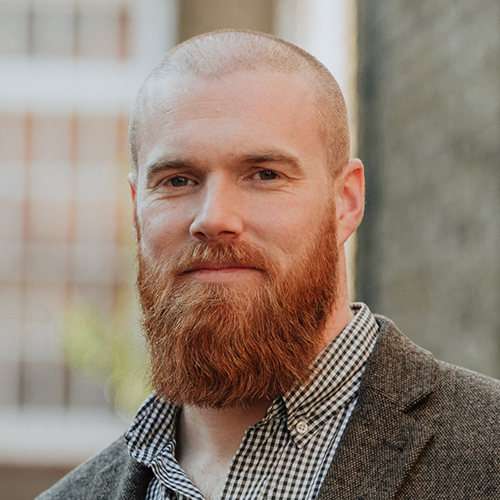We ought to be much happier. Everything seems to be set up for greater happiness. If you could step back 100 years and describe what was coming, it would literally sound like some version of paradise:
Everyone will be much wealthier. There will be very few taboos or constraints enforced on us by religion. Each person is free to choose the path they want in life. There is a constant flow of entertainment fed into our homes and our hands. You can go anywhere you want in the world for not much money. The local shops will stock the best ingredients sourced globally. You can throw away your clothes at the end of the season and buy a new set at rock bottom prices. You can warm your home in minutes, use the toilet indoors, and wash under freshly heated water sprayed at you out of a pipe in the wall. There will be cures for most diseases, and you’ll live longer. You won’t need to wash your clothes or the dishes by hand. It will even be possible to have sex with a stranger within 20 minutes at any time of day, no strings attached. Oh, and by the way, the weather will be getting warmer every year.
But of course, it hasn’t worked. Even though every part of our lives is surrounded by comfort and technology that promotes ease; even though there are tastes and experiences and sensations available that our grandparents couldn’t imagine; even though we have an exceptional level of personal freedom and liberty with the result that there are very few things you can’t do; despite all of this, we are no happier.
At first, this seems to make no sense. All of us would naturally assume that increasing pleasure and diminishing pain or discomfort should lead to greater happiness. There is even an official philosophical name for that belief: it’s called hedonism. But you do not need a philosophy to persuade you that hedonism is the way to go; it’s natural, intuitive, even animalistic, to pursue pleasure rather than pain, and to get as much pleasure as you can.
And yet, all the evidence points to the absolute failure of hedonism in delivering happiness. Why is that the case?
It is partly due to a phenomenon called the adaptation principle, which means that each of us will adapt to new circumstances (good or bad) and return to our ordinary level of happiness over time. The psychologist, Jonathan Haidt, gives an extreme example of the adaptation principle at work. He sets up a thought experiment in which we are asked to imagine the best and worst things that could happen to us, and suggests that many would think of either winning the lottery (the best) or being paralysed from the neck down (the worst). Many would rather die than become a paraplegic. But the shocking truth is that, a year after either of these events taking place, your happiness level would return to normal.[1] The lottery winner is no happier than the paraplegic.
In fact, psychologists tell us that the opportunity to experience more pleasure in life causes us to step onto the ‘hedonic treadmill’. Just as a treadmill can get faster and faster, while the runner is (effectively) going absolutely nowhere, so too with the experience of more and more pleasure. The more you have, the more you need in order to experience happiness. And money makes it worse since it simply ‘speeds up the hedonic treadmill’.[2] The wealthier you get, the more disillusioned you will become as you fail to find any lasting pleasure that makes you happy.
Even if concepts like ‘the adaptation principle’ and ‘the hedonic treadmill’ are well established scientific truths, it is still hard to accept all this as true for you. Most of us, if pressed, would admit that no particular pleasure in life has made us happy yet, but we still hold out hope because we simply haven’t tried everything. There’s something we need that’s just out of reach – be it the thrill of romantic love, the liberty of wealth, or the opportunity to satisfy wanderlust by becoming a global nomad.
A problem arises, however, when we continue on in determination to find happiness through pleasure. At some point this belief system (and it is a belief system; perhaps even the defining belief of our age) leads to some kind of self-destructive choice. As a pastor, I have had many conversations with people who have found themselves sucked into the vortex of darker choices in pursuit of pleasure. One of the reasons this path fails is because it is so often accompanied by the most powerful happiness-stealer we know: the experience of guilt. Selfish or indulgent pleasure-seeking takes us down paths when the unthinkable becomes normal, and many people experience a profound sense of self-loathing and regret because of actions they can’t undo.
A friend recently described this experience in his own life. He likened it to that moment in a club when the lights go on. Up to that point, it had all been ecstasy and thrill, but then, as the lights fade up, there’s a sense of realisation and disgust. You don’t look that good, and neither do those around you.
None of this is new, of course. Almost 3,000 years ago a man known only as The Teacher wrote a short book called Ecclesiastes about his own experiences of seeking happiness through pleasure: ‘Whatever my eyes desired I did not keep from them. I kept from my heart no pleasure.’ And what did it amount to? His conclusion:‘Vanity and a striving after wind…’[3] He felt the deep sense of emptiness that comes through a meaningless life of pleasure-seeking.
If hedonism doesn’t work, then what does? The sad irony is that our growing prosperity in the West has led to the abandonment of those very things that genuinely lead to human flourishing, in particular, community and religion.
I witness this very clearly living in Central London. This great city is awash with young people who have moved here largely driven by an individualistic pursuit of fulfilment and pleasure. But, inevitably, for most this has meant leaving behind the rich and thick relationships of family and of community, and very often walking away from their faith.
And then something beautiful happens. When loneliness, emptiness and disappointment begin to set in, a spiritual hunger gently awakens. Many who come to our church (and churches like ours) have arrived at that same conclusion The Teacher came to millennia ago. They too have trod a circuitous route through pleasure-seeking that eventually leads them to the place they were running from. They return to their faith, and to God.
I dislike simplistic answers as much as the next man, and I don’t think the recovery of faith is a straightforward, uncomplicated solution to the quest for happiness. An authentic faith will involve self-denial, sacrifice, vulnerability, humility, and (perhaps the dirtiest word of all) obedience. But if the definition of insanity is doing the same thing over and over, whilst expecting different results, then there is a kind of insanity in a world that keeps doubling down on the failed experiment of pleasure-seeking. In stark contrast to this, the recovery of faith offers what pleasure-seeking cannot deliver: an end to the futile quest and the sense that you have finally come home.
[1] The Happiness Hypothesis, Jonathan Haidt, p.84–86.
[2] ibid. p.89
[3] Ecclesiastes 2.10–11





